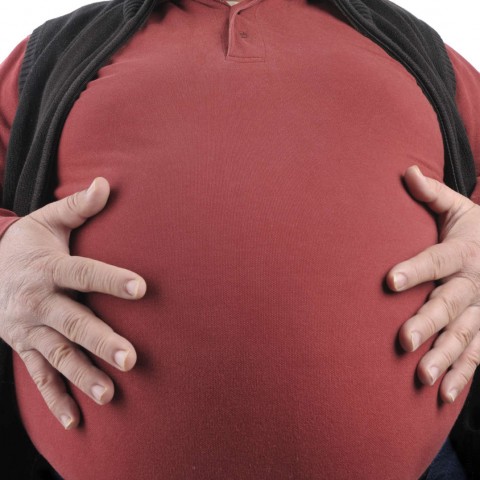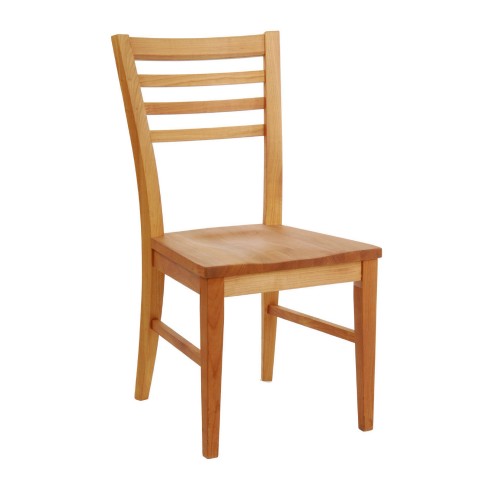
Let’s take a look at these three sentences:
- 你坐啊。(Nǐ zuò a.)
- 你坐吧。(Nǐ zuò ba.)
- 你坐嘛。(Nǐ zuò ma.)
They all have the same “sentence stem,” which is made up of the subject 你 (nǐ), or “you,” and the action verb 坐 (zuò), meaning “to sit.” The last word in each sentence (a/ba/ma) is a particle, which doesn’t carry referential meaning, and therefore has no direct translations. Literally, these three sentences could all translate as: “You sit.”
However, the Chinese particles at the end of each sentence drastically change the speaker’s mood and attitude. Final particles in Chinese can, for example, express that the speaker is feeling excited, making a polite suggestion, or being a little pushy and forceful.
Particles at the end of a sentence or question in Chinese are called final particles, also known as Chinese modal particles, as they indicate the speaker’s mood. Sentence-final particles can imply one’s attitude and intention in an indirect and subtle way, while at the same time making the speech colloquial. They’re often in a neutral tone, with no tone mark.
In this article, you’ll learn some of the most commonly used final particles in Chinese and how to use them properly in different contexts. Start with a bonus, and download the Must-Know Beginner Vocabulary PDF for FREE! (Logged-In Member Only)
 Table of Contents
Table of Contents
- Most Common Final Particles Used in Sentences
- Most Common Final Particles Used in Questions
- Comparison of Chinese Sentence Ending Particles
- Conclusion
1. Most Common Final Particles Used in Sentences
Note: Since there are barely any modal particles in English, we’ll provide the translations in the example sentences below with the indicated meanings, instead of the literal meanings.
1- 啊 (a)
A- Usage 1: indicating excitement, exclamation, or a sense of urgency from the speaker

Example:
- 好香啊!
Hǎo xiāng a!
“It smells so good!”
This Chinese particle is used when you’re amazed at how great something smells, whether it’s food, flowers, or anything else with an aroma. Adding the particle 啊 (a) is the equivalent of saying “wow” in this context.
- 我不知道啊!
Wǒ bù zhīdào a!
“I honestly don’t know!”
The 啊 (a) after 我不知道 (Wǒ bù zhīdào), or “I don’t know,” gives more flavor to the sentence. An example situation of when you could say this is if everyone is looking at you, but you honestly have no idea why!
- 你快说啊!
Nǐ kuài shuō a!
“Say it, hurry!”
This could be used to ask someone to tell you something you need to know right now. For example, when a police officer interrogates a suspect, or a teenage girl is eager to find out more about her crush.
B- Usage 2: listing a number of things in colloquial language
啊 (a) is attached after someone has listed a number of things.
- 动物园里有大象啊,老虎啊,狮子啊等等。
Dòngwùyuán lǐ yǒu dàxiàng a, lǎohǔ a, shīzi a děngděng.
“In the zoo, there are elephants, tigers, lions, and so on.”
- 他擅长各种运动。比如说跑步啊,游泳啊,骑车啊,打篮球什么的。
Tā shàncháng gèzhǒng yùndòng. Bǐrú shuō pǎobù a, yóuyǒng a, qíchē a, dǎ lánqiú shénme de.
“He’s good at all kinds of sports, such as running, swimming, biking, playing basketball, and things like these.”
2- 了 (le)
了 (le) is considered one of the most difficult Chinese particle words to use. This is because it’s such a versatile and flexible word that it comes in many different forms and can be used in a variety of situations.
When put at the end of a sentence (not as part of a sentence pattern), the particle 了 (le) has two major functions:
A- Usage 1: indicating completed actions and past events

- 今天早上我喝咖啡了。
Jīntiān zǎoshang wǒ hē kāfēi le.
“This morning, I drank coffee.”
Because Chinese verbs don’t conjugate, 了 (le) is often used as a marker for “past tense.” However, you need to be careful with the 就要……了 (jiù yào …le) pattern, meaning “about to….” This pattern is used for future events or actions.
In order to confirm the time an action took place (or will take place), always check the time phrases and context, which is how the Chinese language works in terms of tenses.
Like in our example, the time phrase 今天早上 (jīntiān zǎoshang), meaning “this morning,” lets the listener know that this is a completed action.
B- Usage 2: indicating change of status or state
For example, this may not be something you want to tell your friend, even if it’s true:
- 你胖了。
Nǐ pàng le.
“You gained weight.”
The “you”‘ is in a different condition now. “You” were thinner when I last saw “you.”
- 下雨了。
Xiàyǔ le.
“It’s starting to rain.”
下雨 (xiàyǔ) means “to rain.” With the final particle 了(le), the sentence indicates that the weather is changing. It wasn’t raining, but now it is.
3- 啦 (la)
A- Usage 1: can be viewed as the combination of 了 (le) and 啊 (a)
When we say the Chinese particles 了 (le) and 啊 (a) together quickly, it sounds like 啦 (la). As a result, it could indicate completed actions and change of state, with a tone of exclamation.
For example:
你胖了 (nǐ pàng le) without any more modal particles is usually a very neutral statement, even though it could hurt someone’s feelings. But when you say it with the particle 啦 (la), you’re making a big deal of it.
- 你胖啦!
Nǐ pàng la!

It’s almost like saying: “OMG, you gained weight!”
If your friend gets mad, you’re absolutely guilty.
- 今天早上我喝咖啡啦!
Jīntiān zǎoshang wǒ hē kāfēi la!
You could use the sentence above when you haven’t had coffee for years, and finally this morning, you had some coffee. One could definitely feel the excitement, as well as the caffeine in you, when you say: 今天早上我喝咖啡啦!
B- Usage 2: 啦 can also be used as a soft imperative to urge someone to do something
This usage is very common in Taiwanese Mandarin.
Example:
- 再吃点啦。
Zài chī diǎn la.
“Eat more.”
The sentence above is urging someone to eat more, but with good intentions. It’s typically used by a parent to their child, or a host to guests at a homemade dinner.
4- 吧 (ba)
吧 (ba) is one of the few very common, yet easy-to-use, final particles in Chinese. Great for boosting your confidence after wrapping your mind around all the complicated particles.
A- Usage 1: making suggestions
Example:
- 我们走吧。
Wǒmen zǒu ba.
“Let’s go.”
Without 吧 (ba), 我们走 (wǒmen zǒu), which literally translates as “we go,” sounds a bit harsh, like making a command. By adding the 吧 (ba) at the end, the tone of voice gets softened. It still tells the other person to go, but in a more polite way, almost like making a suggestion.
- 这样吧,我们先取消这个会议。
Zhèyàng ba, wǒmen xiānqǔ xiāo zhège huìyì.
“How about this? We’ll cancel this meeting for now.”
The phrase 这样吧 (zhèyàng ba) is often used to bring up a solution in a humble way, without sounding bossy.
B- Usage 2: indicating that the speaker is accepting something half-heartedly
Example:
- 那好吧。
Nā hǎo ba.
“Alright then.”
If you don’t like someone’s idea, but can’t quite think of a better solution, this is the phrase to use.
- 行吧,你想取消就取消。
Xíng ba, nǐ xiǎng qǔxiāo jiù qǔxiāo.
“Okay then, if you want to cancel it, cancel it then.”
行吧 (xíng ba) is used to okay something you’re not thrilled about, but don’t mind trying.
5- 哦 (o)
哦 (o) is used more by females than by males as a modal particle, since it adds a tone of softness, friendliness, and sometimes even intimacy to the speech.
- 小心哦。
Xiǎoxīn o.
“Be careful, okay?”
小心 (xiǎoxīn) means “be careful.” By adding the particle 哦 (o), the tone becomes more gentle and sweet. A strict father may tell you 小心 (xiǎoxīn), while a loving mother may tell you 小心哦 (xiǎoxīn o).
- 不要忘了给我打电话哦。
Búyào wàng le gěi wǒ dǎ diànhuà o.
“Don’t forget to give me a call, alright?”
This is something a girl would tell her boyfriend, or a worrying mother would tell her son who’s going abroad for new adventures.
6- 呢 (ne)
As a sentence final article, 呢 (ne) can soften the tone while emphasizing a fact, usually when trying to convince someone of something.
- 还早呢。不用担心。
Hái zǎo ne. Búyòng dānxīn.
“It’s still early. Don’t worry.”
“It’s still early” is the fact. “Don’t worry” is what you’re trying to convince the other person to do.
- 一百多块呢。还是别买了。
Yìbǎi duō kuài ne. Háishì bié mǎi le.
“It’s over a hundred kuai. We’d better not buy it.”
块 (kuài) is the colloquial way to say 元 (yuán), the official unit name for Chinese currency.
“It’s over a hundred kuai” is the fact. “Don’t buy it” is what you’re trying to tell the other person to do.
7- 嘛 (ma)
This final particle is used when the speaker thinks something is obvious.
Be careful using this particle, because in some situations, it could sound condescending, pushy, and impatient.
- 这个很简单嘛。
Zhège hěn jiǎndān ma.
“This is so simple.”
Without the particle 嘛 (ma), 这个很简单 (zhège hěn jiǎndān) is a neutral statement meaning “This is simple.” With the 嘛 (ma), it could imply that “This is so simple, you don’t get it?” or “This is so simple, I can solve it in only a few seconds.”
- 你快点嘛!
Nǐ kuàidiǎn ma!
“Hurry up, will you?”
In this context, 嘛 (ma) makes the speaker sound very impatient, like a father yelling at his son to keep him from missing a flight.
2. Most Common Final Particles Used in Questions
Chinese final particles are not only used in sentences, but also in questions. Here are some common Chinese question particles:
1- 吗 (ma)
Unlike the 嘛 (ma) we mentioned above, this 吗 (ma) is a question marker that turns a sentence into a yes-or-no question.

这是一只猫。(Zhè shì yī zhī māo.) is a sentence meaning “This is a cat.” When we attach 吗 (ma) to the end of the sentence, it becomes a question.
- 这是一只猫吗?
Zhè shì yī zhī māo ma?
“Is this a cat?”
By itself, 她会说英语。 (Tā huì shuō Yīngyǔ.) means “She speaks English.” Look at what happens when we add 吗 (ma):
- 她会说英语吗?
Tā huì shuō Yīngyǔ ma?
“Does she speak English?”
2- 啊 (a)
啊 (a) can be used at the end of a sentence, and at the end of a question, to express surprise or excitement in colloquial speech.
- 你没去啊?
Nǐ méi qù a?
“You didn’t go?”
By adding 啊 (a), it indicates that the speaker is surprised about the fact that “you didn’t go.”
- 你到底什么意思啊?
Nǐ dàodǐ shénme yìsi a?
“What on earth do you mean?”
The speaker is clearly angry here, using the adverb 到底 (dàodǐ) “on earth” and the Chinese exclamation particle 啊 (a) to intensify his tone.
3- 吧 (ba)
When used in questions, 吧 (ba) softens the tone like it does in sentences. But at the same time, it’s soliciting agreement from the listener, similar to the tag questions in English. An answer is expected from the listener.
- 他走了吧?
Tā zǒu le ba?
“He left, didn’t he?”
Notice that there are two particles in a row in this sentence. 了 (le) to indicate completed actions, and 吧 (ba) to ask a question that he’s pretty sure he knows the answer to.
If we switch 吧 with 吗, the question becomes 他走了吗? (Tā zǒu le ma?) In this case, the speaker doesn’t know if “he has left” or not. He’s simply asking a question he’s not sure about.
- 今晚不会下雨吧?
Jīnwǎn búhuì xiàyǔ ba?
“It won’t rain tonight, right?”
The speaker may be seventy percent sure it won’t rain tonight, but still wants to double-check with the listener.
4- 呢 (ne)
When used in questions, 呢 (ne) can be used in a few ways.
A- Usage #1: after a topic is brought up, attach 呢 (ne) to another subject to ask “How about …?”
- 我很好。你呢?
Wǒ hěn hǎo. Nǐ ne?
“I’m very good. How about you?”
- 他爸爸去世了。他妈妈呢?
Tā bàba qùshì le. Tā māma ne?
“His dad passed away. How about his mom?”
B- Usage #2: meaning “where”

Simply put 呢 (ne) after a subject whose whereabouts you’d like to know.
- 小明呢?
Xiǎo Míng ne?
“Where is Xiaoming?”
- 我的手机呢?
Wǒ de shǒujī ne?
“Where is my phone?”
C- Usage #3: softening the tone in a question of choices
- 我要不要去呢?
Wǒ yào búyào qù ne?
“Should I go or not go?”
This has the same meaning as 我要去吗?(Wǒ yào qù ma?) in which 吗 is used to indicate that it’s a yes-or-no question, while in 我要不要去呢?the choices have been given: 要 (yào) or 不要 (búyào), and the 呢 at the end softens the tone.
- 你有没有考虑过我的感受呢?
Nǐ yǒu méiyǒu kǎo lǜ guò wǒ de gǎnshòu ne?
“Have you ever thought about my feelings?”
The literal translation is: “You have or have not thought about my feelings?” 呢 (ne) is untranslatable as it only helps to soften the tone.
3. Comparison of Chinese Sentence Ending Particles
Now let’s revisit the three sentences at the beginning of this article. Can you tell what tone of voice they could carry and in what situation they may be used?

1. 你坐啊。(Nǐ zuò a.)
2. 你坐吧。(Nǐ zuò ba.)
3. 你坐嘛。(Nǐ zuò ma.)
Sentence 1 with the final particle 啊 (a) could be used when you’re visiting your friend, and he or she asks you to take a seat and make yourself at home. It’s like saying: “Sit, make yourself comfortable.”
Sentence 2 with the final particle 吧 (ba) could be used by your supervisor who’s inviting you to sit in his office when he needs to speak with you in private. It’s like saying: “Grab a seat. We need to talk.” He’s trying to be nice by making a suggestion with 吧 (ba).
Sentence 3 with the final particle 嘛 (ma) could be used by your mom urging you to sit after having told you many times. It’s like saying: “Please sit down for me!”
Well done. Now let’s try to put some more Chinese final particles after the sentence stem 你坐 (nǐ zuò).
4. 你坐哦。Nǐ zuò o.
5. 你坐吗?Nǐ zuò ma?
6. 你坐了啊?Nǐ zuò le a?
Sentence 4 with the final particle 哦 (o) could be used by your new girlfriend acting sweet on you, telling you to sit next to her. It’s like saying: “Sit, my dear.”
Sentence 5 is a question with the final particle 吗 (ma). It’s simply asking: “Are you going to sit?” in a neutral tone.
In question 6, there are two final particles. The first one is 了(le), possibly indicating that something happened in the past. The next one is 啊 (a), asking a question with strong emotion. In a question, it likely carries a tone of surprise.
坐 (zuò) as a verb could translate either as “to sit” or “to ride.” So 你坐了啊 could either be saying: “You sat? Really?” or “You’ve ridden in it? Oh wow.”
4. Conclusion
Understanding Chinese ending particles and knowing how to use them in different settings takes a lot of time and immersion.
If you’re a beginner, my advice is to keep your ears open for these particles, but try to stay away from them when you speak. If you use them correctly, your Chinese will sound very native and impressive, for sure. But if you put them in the wrong settings, you could embarrass yourself and your listeners. Think of the particles as the garnishments in cooking. For a great chef who knows his basics, his dish tastes fantastic even without fancy plates or flowers!
Once you’re more comfortable and confident speaking Chinese, try out some of the particles with your friends who are willing to correct you. Eventually, you’ll be able to add different flavors to your speech with the proper final particles.
Don’t forget that simulating immersion with our lessons is what ChineseClass101.com strives to do. You can listen to our audio lessons while commuting, before you sleep, after your work, or anytime you want. Download our app or go to our website to enjoy our free lessons!
How did you like this lesson? Is there anything about Chinese final particles you still need clarification on? Let us know in the comments; we look forward to hearing from you!










